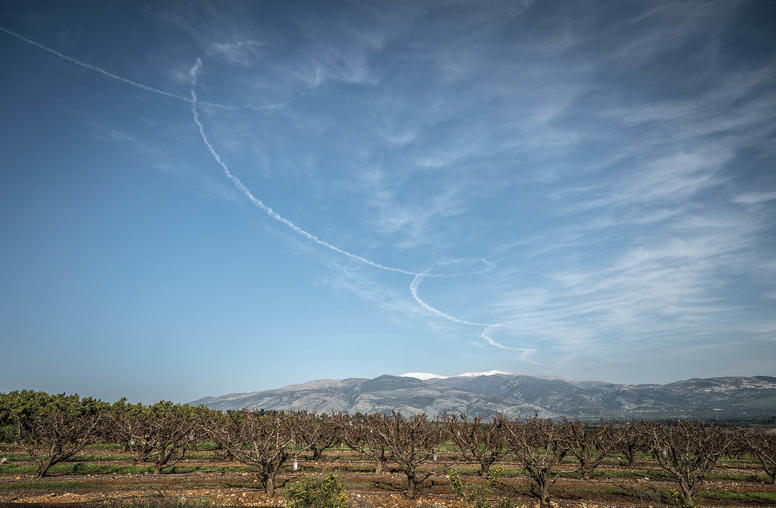Lindborg Calls for New Approaches to Syrian Refugee Assistance
USIP President Testifies Before Senate Foreign Relations Committee
The Syrian crisis has dramatically increased the urgency to reconsider fundamental approaches to humanitarian assistance, and American leadership and support is vital to developing smarter, more effective and more efficient policies, U.S. Institute of Peace President Nancy Lindborg said in testimony today before the Senate Foreign Relations Committee.

As 80 percent of humanitarian assistance now goes to people affected by violent conflict, programs designed to cope with the short-term aftermath of natural disasters need to be rethought, Lindborg said during a hearing on “War in Syria: Next Steps to Mitigate the Crisis.” The needed reforms include forging a closer link between relief and development efforts, focusing on displaced youth as key to future peace and development, and applying more flexible responses to meet the needs of people and communities caught up in conflict, Lindborg said.
The USIP president was testifying for committee Chairman Bob Corker, a Tennessee Republican, and Ben Cardin, the top-ranking Democrat, from Maryland. Other experts presenting to the committee were Robert S. Ford, a senior fellow at the Middle East Institute who served as U.S. ambassador to Syria from 2011 to 2014, and Tamara Cofman Wittes, director of the Brookings Institution’s Center for Middle East Policy, who was deputy assistant secretary of state for Near Eastern affairs from November of 2009 to January 2012.
Lindborg, a former assistant administrator for the Bureau for Democracy, Conflict and Humanitarian Assistance at the U.S. Agency for International Development, assessed the current Syrian situation and made several recommendations:
- The humanitarian disaster in Syria continues unabated. The death toll from the conflict is now estimated at 400,000 to 470,000. The war has displaced 11.3 million people, 4.8 million of whom have fled the country; overall, 13.5 million Syrians need humanitarian aid. Syria has suffered mass atrocities by all sides, including 161 documented chemical weapon attacks.
- The refugee outflow from Syria is destabilizing its neighbors and severely taxing their basic infrastructure including water, electricity, schools and hospitals. Lebanon, host to 1.07 million Syrians, has seen reduced economic growth and rising tensions among its own communal groups. Jordan, coping with 628,000 refugees, has lost more than $2.5 billion a year since the conflict began—the equivalent of 6 percent of GDP. Iraq has added 246,000 Syrian refugees to its own 4 million internally displaced.
- The U.S. should invest now in building peace and reconciliation at the community level as part of its long-term Syria strategy. These efforts need to take place among refugees and, where possible, inside Syria such as a USIP pilot project that brought together Arabs and Kurds to address local tensions. Such work helps lay the foundation for the moderate local leadership and cooperation essential to Syria’s future.
- The International Syria Support Group, co-chaired by the U.S. and Russia, aims to reinstate a ceasefire when it reconvenes today in Vienna. Meanwhile, the U.S. must continue its life-saving assistance and support financing for job creation and government services in refugee host countries.
“In the absence of concerted action, we risk a new generation of youth without hope and potentially poised to continue cycles of conflict,” she said in written remarks submitted alongside her verbal testimony. “Instead it is imperative to focus on programs that enable youth to have opportunities, be heard and have a chance to contribute to a more hopeful future.”
Lindborg also testified before the committee in September on the Middle East humanitarian crisis and submitted testimony last month to a Senate appropriations subcommittee on “The Causes and Consequences of Violent Extremism and the Role of Foreign Assistance.”



